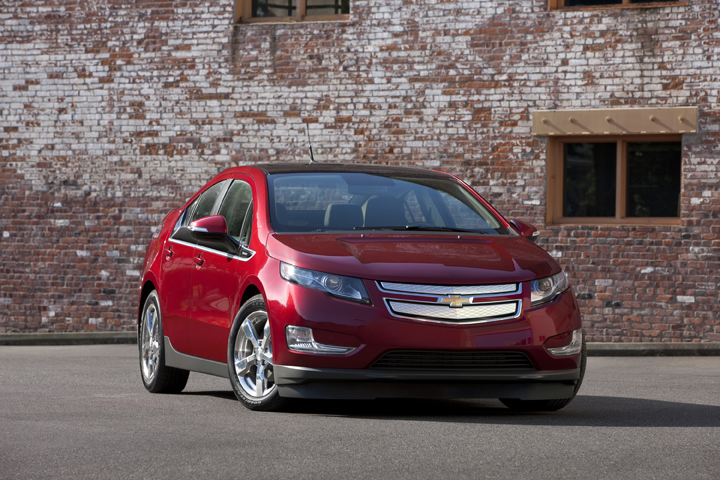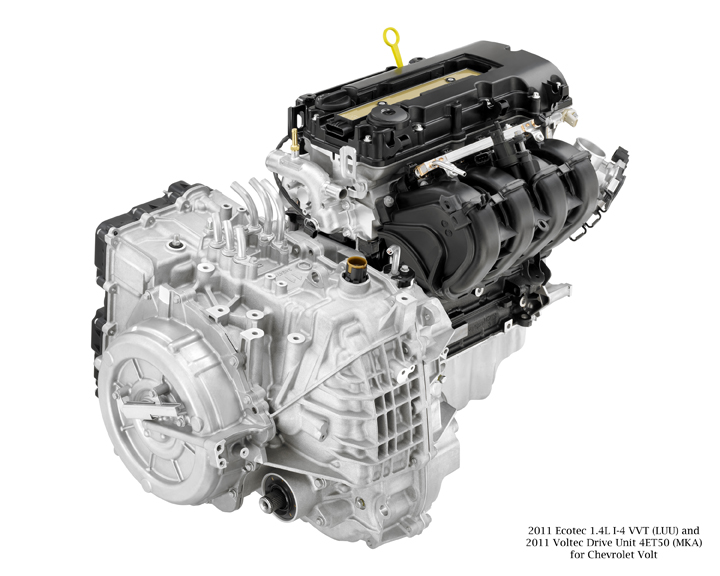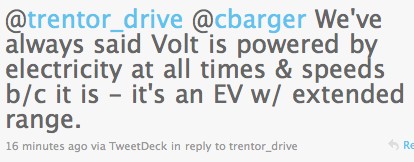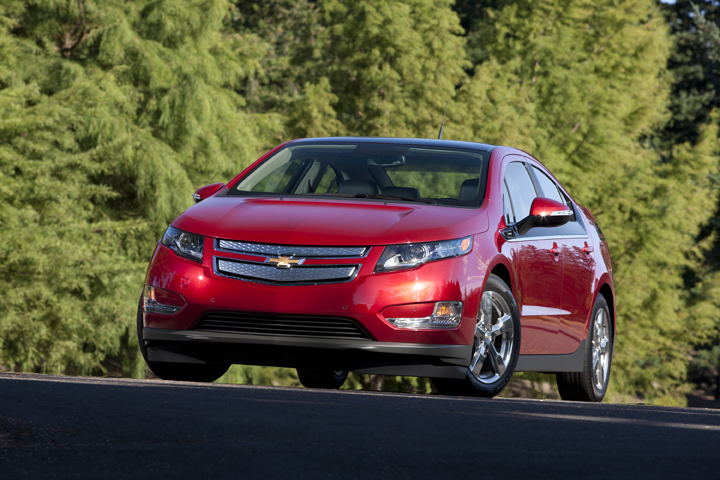This will be our last word on the whole "GM Lied!" and "Is the Volt a hybrid?" controversy, which blew up yesterday at the first day of the 2011 Chevrolet Volt press launch.
Late last night, GM issued a press release (largely reprised on its Voltage site) entitled "Clearing up confusion about the Chevy Volt." The company noted, "some confusion has emerged about details of the Volt’s drive technology."
Well, yes. Indeed.
Electric yes, hybrid OK, gasoline-driven ... no
In brief, GM revealed a mode of operation for the Volt in which under certain circumstances, the gasoline engine contributes mechanical torque that is blended with torque from the traction motor to propel the Volt.

2011 Chevrolet Volt
This has caused no end of shrieking and hyperventilating about whether the Volt is a hybrid, whether GM has deliberately deceived you, me, and the Volt-buying public, and so forth.
Frankly, we're a little miffed that GM omitted this detail and has insisted for three years that the engine never directly drives the wheels. That's true, but there's more to the story.
Still, we think the entire controversy--fomented by a few aggrieved writers who may not have driven the saleable Volt, since we didn't see them at the first day of official drives--is absurd for a couple of reasons.
Take out the pack, and ??
First, the 2011 Volt runs electrically. It couldn't move an inch if you removed the lithium-ion battery pack, but it could run just fine--for 25 to 50 miles--if you yanked out the range extender gasoline engine. It's an electric car.

1.4-liter range extending engine and Voltec drive unit on 2011 Chevrolet Volt
Second, we've driven the Volt. The car is propelled by electric power, all the time. There is no way that any passenger can tell at what point the engine clutches in to assist the traction motor with some added direct torque.
And that's very different to a hybrid like the Toyota Prius, when you can often tell from the rising and falling engine note which parts of the powertrain are providing power.
If you removed the battery pack from the Toyota Prius hybrid, by the way, it would run just fine. As a gasoline car.
Finally, GM had intellectual property reasons to keep the new function close to its chest. The company applied for a patent on the drive mode in September 2007; it wasn't granted until September 21 this year. Tipping off other makers wouldn't make sense.
Many, many people hate GM
But the bigger point here--and the place we think GM clearly fell down--is that a surprisingly large number of people truly loathe, despise, and hate General Motors, and will take any opportunity to bash the company.
That's a handicap that other electric-car makers (e.g. Nissan, Coda) simply don't have to cope with. The 2011 Nissan Leaf electric car has a range of up to 100 miles, and Chevy is energetically trying to paint that as inadequate, even downright dangerous.
Could the so-called Voltgate hoohah overshadow a serious discussion of the two cars' relative capacities and merits? Yep.

GM response to Volt/PR fiasco
EV1, bailout, even Obama
Looking at the comments on a calm, rationed counterpoint to the hysteria propounded by some parts of the automotive media, it's clear that many people loathe GM because:
- In the memorable phrase popularized by "documentary" film maker Chris Paine, GM killed the EV1 electric car.
- GM also received government assistance to emerge from bankruptcy, leaving U.S. taxpayers owning a majority of the company with no guarantees they'll get paid back at 100 cents on the dollar.
- The company built many substandard cars for 30 years, losing an entire generation of educated buyers to largely Asian competitors; many of those lost customers are still bitter over their lousy experiences with past GM products.
- Even dislike and contempt for President Barack Obama, who made the decision to rescue GM, plays into the hatred.
In the end, we suspect that GM executives may have taken their eye off the ball in a flush of pride over the successful launch of the world's first mass-produced range-extended electric vehicle (or "series hybrid" if you prefer).
That kind of willful blindness to negative views of the domestic auto industry--GM especially, Ford less so--is something we see a lot in Detroit. And now that GM is back on more solid footing and building mostly competitive products, it seems to be increasing.
We think that's a very, very dangerous attitude for any GM employee or supporter to have. For several years to come.

Chelsea Sexton
Cynicism: More than just EV1 drivers
To quote no less a luminary than electric-car advocate Chelsea Sexton--prominently featured in Who Killed the Electric Car?--"GM is in denial about how much the cynicism about the company and about electric cars extends beyond EV1 drivers themselves."
Sexton, it's worth noting, is about to take delivery of a brand-new 2011 Volt for three months, courtesy of GM, as one of 15 EV advocates who form the Volt's Customer Advisory Board.
She too thinks the so-called controversy is overblown: "From a technical perspective, everyone's getting way too hot and bothered about the semantics."

2011 Chevrolet Volt
Technology is not the Volt's problem
But, she says, "it's fair to call out GM for protesting too much" (e.g. insisting to the media, including us, that the Volt is not a hybrid and the engine does not power the wheels) "and not admitting to this a long time ago."
(Volt spokesperson Rob Peterson spent time this summer dancing around the actual facts we know now, for instance. He never lied, but it was not--as they say in court--"the truth, the whole truth, and nothing but the truth.")
Mistakes in marketing
"As seems to be their history with electric vehicles," Sexton concludes sadly, GM's "mistakes are in communications and marketing, not technology."
(This is the point where we are compelled to insert an obligatory reference to the appalling Volt Dance from last year's Los Angeles Auto Show. The Volt marketing manager responsible for it was replaced.)
That is, she hastened to add, deeply unfortunate for the communications team members who have been there since late 2006, because "they're a huge part of the reason the program has the fans it does."
Lost afternoon
Sexton's final take on yesterday's tempest in a teapot?
"I know I left a whole afternoon laying around here someplace ..."













